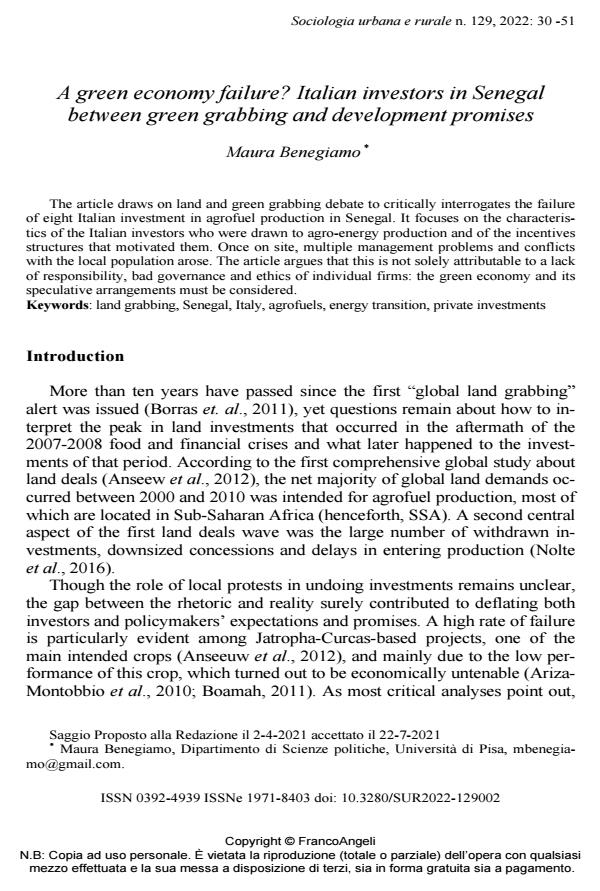A green economy failure? Italian investors in Senegal between green grabbing and development promises
Titolo Rivista SOCIOLOGIA URBANA E RURALE
Autori/Curatori Maura Benegiamo
Anno di pubblicazione 2022 Fascicolo 2022/129
Lingua Inglese Numero pagine 22 P. 30-51 Dimensione file 293 KB
DOI 10.3280/SUR2022-129002
Il DOI è il codice a barre della proprietà intellettuale: per saperne di più
clicca qui
Qui sotto puoi vedere in anteprima la prima pagina di questo articolo.
Se questo articolo ti interessa, lo puoi acquistare (e scaricare in formato pdf) seguendo le facili indicazioni per acquistare il download credit. Acquista Download Credits per scaricare questo Articolo in formato PDF

FrancoAngeli è membro della Publishers International Linking Association, Inc (PILA)associazione indipendente e non profit per facilitare (attraverso i servizi tecnologici implementati da CrossRef.org) l’accesso degli studiosi ai contenuti digitali nelle pubblicazioni professionali e scientifiche
The article draws on land and green grabbing debate to critically interrogates the failure of ?eight ?Italian investment in agrofuel production in Senegal. It focuses on the characteristics of the ??Italian investors who ?were drawn to agro-energy ?production and of the incentives struc-tures that ??motivated them. Once ?on site, multiple management problems and conflicts with the ?local population ?arose. The ?article argues that this is not solely attributable to a lack of respon-sibility, bad ?governance ?and ethics of ?individual firms: the green economy and its speculative arrangements must be ?considered.�
Parole chiave:land grabbing, Senegal, Italy, agrofuels, energy transition, private investments
Maura Benegiamo, A green economy failure? Italian investors in Senegal between green grabbing and development promises in "SOCIOLOGIA URBANA E RURALE" 129/2022, pp 30-51, DOI: 10.3280/SUR2022-129002